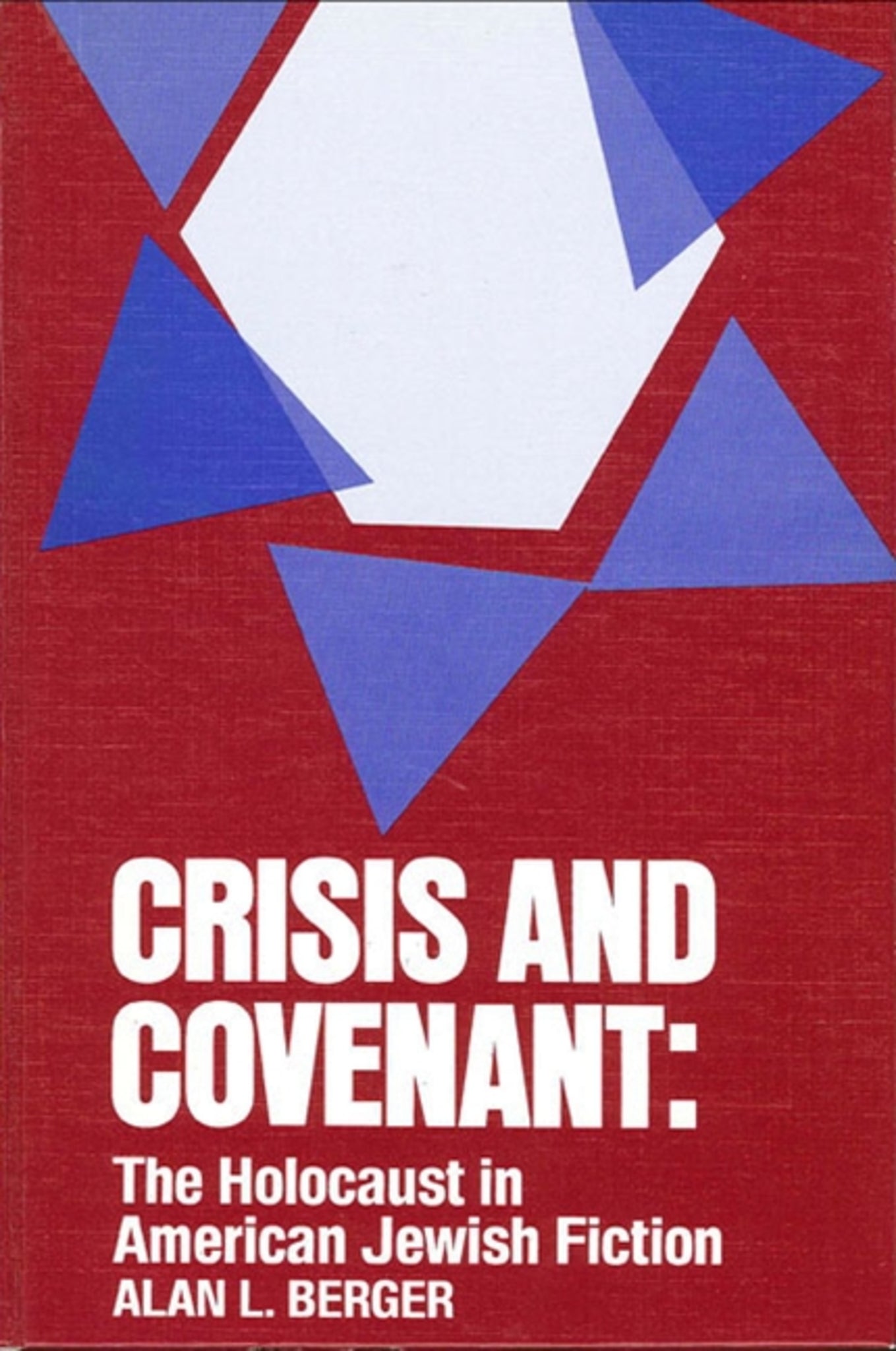We're sorry. An error has occurred
Please cancel or retry.
Crisis and Covenant

Some error occured while loading the Quick View. Please close the Quick View and try reloading the page.
Couldn't load pickup availability
- Format:
-
01 October 1985

Explores how Jewish American writers have grappled with the enormity of the Holocaust.
In Crisis and Covenant, Alan L. Berger delivers a powerful and thought-provoking exploration of how American Jewish fiction has grappled with the cataclysm of the Holocaust. Situating literature at the crossroads of memory, theology, and identity, Berger examines how post-Auschwitz Jewish writers reinterpret the ancient concept of Covenant in light of unprecedented historical trauma.
Through nuanced readings of major American Jewish authors—including Saul Bellow, Cynthia Ozick, Bernard Malamud, Elie Wiesel, Philip Roth, and others—Berger traces the transformation of Jewish thought from religious and secular perspectives, exploring how the Holocaust serves as both a rupture and a point of reflection in modern Jewish narrative. He addresses the crucial question: Can fiction truly represent the Holocaust, and if so, what responsibilities do Jewish writers bear?
Divided into thematic responses—religious, secular, and symbolic—Crisis and Covenant reveals how these authors wrestle with Jewish identity, memory, and survival in a world shadowed by genocide. Blending literary criticism with theological inquiry, Berger presents a compelling study that challenges easy categorizations and opens new avenues for understanding American Jewish literature and its ongoing dialogue with history.


"I am convinced that this book will be an important contribution to the understanding of events and issues that defy understanding. "Much has been written about the theology of the Holocaust, and also about the literature of the Holocaust. What Alan Berger has done is to combine both. Furthermore, he deals more with writers than with concepts, or rather: he deals with concepts through the works of writers." — Elie Wiesel, Andrew W. Mellon Professor in the Humanities, Boston University
"How have American, Jewish writers of fiction faced the Holocaust in a post-Auschwitz world? In a penetrating critique of Bellow, Ozick, Roth, Nissenson, Malamud, et al., Alan L. Berger raises this crucial question and examines it against the ancient and modern claims of the Covenant as it has acted within Jewish life and in religious Judaism. What results is a book insightful, thoughtful, carefully crafted, that establishes Berger as a first-rate critic who has fully mastered the fiction and the writers whom he examines. He is also an established Holocaust scholar. The combination provides all students of American fiction with a major new work of high merit." — Robert W. Ross, University of Minnesota
"This thoughtful and fresh book casts a beam of light in a dark, unexplored literary horizon. It reveals how the central Jewish writers of our time grapple with the awesome, horrifying implications of the Holocaust. Many of these authors—Ozick, Malamud, Nissenson, and Singer, for example—are not usually considered Holocaust writers, but this book breaks beyond the easy categories of theology and literary criticism. Berger skillfully demonstrates here the interweaving of Jewish destiny and meaning with literary and narrative invention. An original, arresting and important work." — Irving Greenberg, President, National Jewish Resource Center
1. Introduction: Jewish Existence
Covenant Transformations
Covenant and Modernity
The Contemporary Covenantal Crisis
Literary Response to Covenant Crisis
American Judaism and the Holocaust
Contributions of American Jewish Holocaust Novelists
2. Holocaust as Watershed
Holocaust Problematics
Theological Responses
Theology and Literature
Is the Holocaust Beyond Artistic Expression?
Who Should Write of the Holocaust?
Trivializing the Holocaust
American Jewish Writers and the Holocaust: A Critique
The Role of the American Jewish Novelist
3. Holocaust Responses I: Judaism as a Religious Value System
The Holocaust and American Diaspora Jewry
Hasidic Tales
Considering the Evidence
Arthur A. Cohen
Cynthia Ozick
Hugh Nissenson
Elie Wiesel
Isaac B. Singer
Conclusion
4. Holocaust Responses II: Judaism as a Secular Value System
Considering the Evidence
Bernard Malamud
Saul Bellow
Susan F. Schaeffer
Cynthia Ozick
Pre-Holocaust America: Jewish Existence and Covenant Diminishment
Hugh Nissenson
Robert Kotlowitz
Conclusion
5. Holocaust Responses III: Symbolic Judaism
Considering the Evidence
Philip Roth
Richard Elman
Edward Lewis Wallant
Norma Rosen
Bernard Malamud
Conclusion
6. Holocaust and Covenant
The Central Question for Contemporary Judaism
Holocaust Fiction Lato Sensu
Problems and Possibilities
Notes
Index



